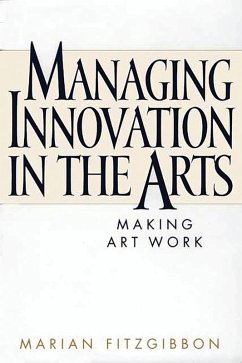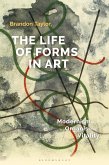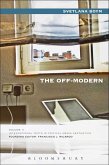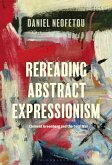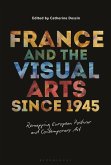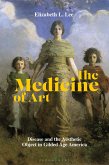A main justification for public funding of the arts is to protect the arts from the marketplace and to encourage experimentation and innovation. But little is known about the actual innovation process. Is funding the only issue? Protecting the arts from the marketplace has up to now been the main item in any discussion of artistic creativity. This publication of Fitzgibbons carefully researched investigation provides a privileged insight which both fills out and refocuses the picture. She examines the operation of three performing arts companies from Ireland, a country whose reputation for creativity bears little relation to its small size and population, and finds that innovation in the arts requires uncommon dedication, persistence and-yes-sacrifice, qualities that have been blurred by the 'mythology' of what makes for artistic innovation. She studies the social and organizational context of most arts work today, with emphasis on the effort that goes into the achievement of innovation, and comes away with a new vocabulary and grammar for managing it. Innovation in the arts is an arduous, stressful process, as it is in all areas of high achievement, but the perception most people have of it is misinformed, says Fitzgibbon. Creativity management is confused with what is commonly known as creative management. She shows it is possible to identify a number of factors that bear heavily on innovation in arts organizations. So far the first study of the management of arts innovation specifically, Fitzgibbon's work offers a privileged and pragmatic insight into the workings of highly innovative arts organizations. The result is a graphic analysis that strips innovation down to its essentials and begins to answer vital questions. This work is essential reading for arts policy makers, managers, administrators and those who would be donors, and for serious students of arts and culture management in the academic community.
Bitte wählen Sie Ihr Anliegen aus.
Rechnungen
Retourenschein anfordern
Bestellstatus
Storno

